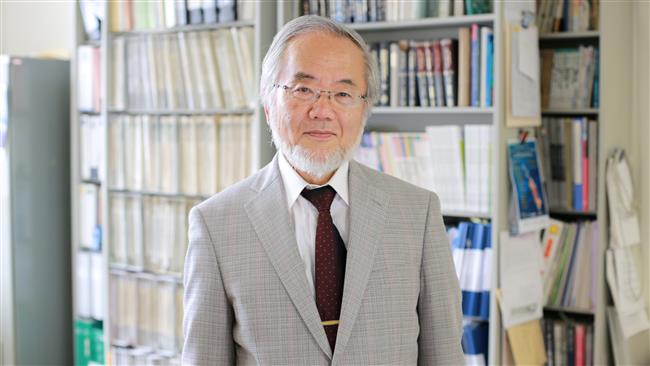Japan’s Ohsumi awarded Nobel Medicine Prize


Japanese scientist Yoshinori Ohsumi has been awarded the 2016 Nobel Medicine Prize for his studies on autophagy, the process of recycling cellular components whose failures cause the Parkinson’s disease and diabetes.
Ohsumi’s discoveries “have led to a new paradigm in the understanding of how the cell recycles its contents,” the Nobel Assembly at Sweden’s Karolinska Institute said in a statement on awarding the prize on Monday.
“Mutations in autophagy genes can cause disease, and the autophagic process is involved in several conditions including cancer and neurological disease,” the statement added.
Autophagy, a process which is essential for the orderly degradation and recycling of damaged cell parts, was known in the 1960s. But Ohsumi’s series of experiments in the early 1990s on baker’s yeast helped “to identify genes essential for autophagy” and the mechanisms for the process.
Discoveries are often awarded by the Nobel jury after decades in order to make sure they have stood the test of time.
“Intense research is now ongoing to develop drugs that can target autophagy in various diseases,” the institute said.
The 71-year-old Ohsumi, who earned a Ph.D. from the University of Tokyo in 1974, has been a professor at the Tokyo Institute of Technology since 2009.
The Nobel Medicine Prize is the first of the Nobel prizes given each year. The Nobel awarding committees will later announce the winners of the prize in the different fields of physics, chemistry, peace, economic sciences, and literature.
The nearly one-million-dollar award has been the ultimate recognition for scientists, writers and peace activists for more than a century.




